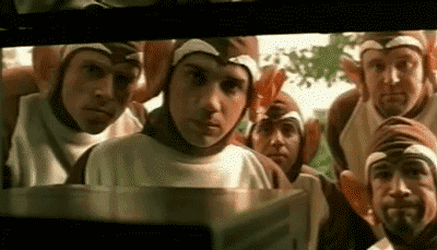I have almost finished the 2nd part. Final part tomorrow.
It was a fascinating historical account from the German people’s perspective. At first you wouldn’t even know there was a war going on around you, people were carrying on as normal. The propaganda programme of Goebbels was an eye opener, how he cunningly brainwashed most of the people. The Russians took their brutal revenge when they entered the region, they weren’t exactly pleasant either. It was so sad, seeing the youngsters being manipulated and getting conscripted and the horrors of the camps.
Just finished this and feel as if I should read it all again. The topic is so complex, but fascinating.
I haven’t read it - having lived my whole life watching some of the most tragic events in these parts unfold, and diving time between two countries that fell victim to series of bad decisions, I kind of avoid reading about it as it’s pretty difficult for me to engage in such material. Believe me when I say it, our historic troubles can’t fit into 800 pages…
That’s understandable, but I’d recommend it nonetheless.
The region has suffered even more than most from the meddling of outside powers, The Ottomans, Russia, Austria/Hungary, Germany, the US and Britain have all been guilty at one time or another. The place is the victim of its geographic location.
Trying to learn about WWI during a time when Yugoslavia was still a country was one of my most confusing times in school.
You then have the aftermath. Princip and his collaborators were prosecuted and jailed by Serbia. None of them men were citizens of Serbia as all were from parts of the region under Austrian control and so citizens of their empire. And Austria responded by declaring war. It is like a model for Bush declaring war on Iraq for 9/11
You probably meant that he was imprisoned and trialed by Austro-Hungary. What was the most impressive thing about his movement was that it consisted of Serbs, Croats and Muslims who all seeked the unification of Southern Slavs and freedom from every form of imperialism.
Obviously, no one needed a strong, unified country with such geographic position and natural resources (in truth, fossil fuels weren’t important back then), so the great powers did all they could to turn us against each other and tear that country piece by piece, which in hindsight wasn’t that difficult because this region had always been a powder keg and some powerful empire always had its paw on it (usually Ottomans and Austro-Hungarians).
So often in the study of history one is left with a despair at people’s tendency to over emphasise differences and ignore commonalities with their fellows. This is an extreme example of that.
I worked in the Green Line in Cyprus during my TA days. On one side of the divide were swarthy Mediterranean folks. Hard working types who would give you the shirt off their backs . On the other side were Mediterranean folks. Hard working types who would give you the shirt off their backs .
The only difference between the two lots of people was the language and the God that they worshipped.
I’ve never understood why people can be charitable to a stranger who has little in common with them but have such animosity for close neighbours? ![]()
Evolutionary anthropology has some pretty convincing arguments about that (at least to someone without the knowledge to identify the limits of the research).
Essentially, it’s hard wired into us to draw those distinctions for safety (see chimp gang wars), both of the person and the tribe. In tribal society, the in group is small enough that you can by on the basis of something as simple as do you recognize them. As society developed and grew and people were forced to interact more surrogates needed to be developed. Language, currency, skin colour and other physical characteristics become very easy to identify markers. Religion too, and then explains why cultures were so amendable to borrowing other people’s gods.

Turf war…

No, but interesting, as it goes quite a way back to 1804, a time of also many changes and unfortunate wars throughout Europe. Like it’s been said here, this part of the world has seen so, so many changes. Not easy to understand or remember everything in detail. Here, we often stop at the last war of Croatian Independence, WWII and WWI at a stretch. Sometimes you need to go further back to understand some things in the present and take lessons for the future.
It’s extremely complex and often confusing. The effect of the Ottoman empire is still felt in the present. It’s also interesting to see how Croatia and Slovenia were drawn into Austrian and, later, German influence, which is an important factor today.
Yeah, I’ve watched a few things the last few years on the conflict between the Austrian and Ottoman empires, and the undercurrent is the people in the Balkans just pleading with them to go and have their war somewhere else and leave them along.
Very interesting documentary on the BBC. Resonant today…
Amazing story…
Thanks for this, perfect timing as I am currently obsessed with war and Hitler podcasts on Spotify. Sounds like the evil prick just had a unique ability to deliver speeches and influence.
When I was in Berlin last year I became fascinated by the whole history of that town. I’m not much of a history guy generally but the wars and subsequent Cold War period is so interesting. Heading back to Berlin in April so gunna learn more and more. This will help.
Let me know if you need any info. I’ve lived there for 31 years.